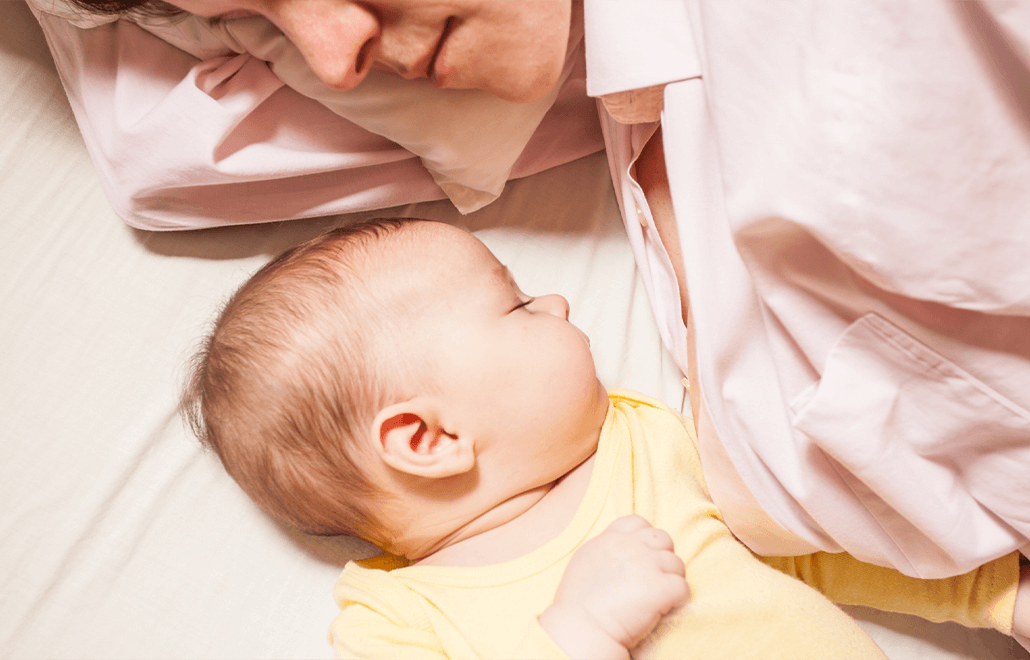
21 Sep What is Co-sleeping? Is it Safe?
3 min. readMany parents want their babies to stay close to them and that is why they sleep with them in the same bed. This is known as co-sleeping where the baby and the parents are in close physical proximity. While parents want their babies to sleep in the same so they can keep them safe, it can lead to various medical issues, including sudden infant death syndrome (SIDS).
However, there is no harm in room-sharing where the baby sleeps in the same room as the parents. The baby can be in a crib close by to their parents but not on the same surface. Co-sleeping is also known to increase the risk of sleep-related deaths. Let’s go over the vital things you need to know about co-sleeping.
Co-Sleeping: What are Things to Think About?
Co-sleeping is when the baby and the parents are sleeping together on the same surface. It can lead to various fatal sleeping accidents in a few instances and also increase the risk of sudden unexpected death in infancy (SUDI).
Therefore, the U.S. Consumer Product Safety Commission (CPSC) and the American Academy of Pediatrics (AAP) advise parents not to sleep with their babies in the same bed. Most parents think that it would be good for the baby if they sleep close to them.
Some mothers would feel it relatively easy to breastfeed their babies during the night if they sleep close to them. However, co-sleeping can increase the risk of SIDS.
Risks of Co-Sleeping
Pediatricians have expressed concern about the risks that are associated with co-sleeping. It increases the risk of suffocation or strangulation, which can lead to SIDS. Adult beds have many safety risks that can put the baby in danger, such as:
- Suffocation: The baby’s head might get stuck between the mattress and the wall or any other thing.
- Strangulation: The baby’s head might get trapped into the bed frame or from dangling cords.
Apart from these risks, co-sleeping might also affect the parent’s sleep schedule. It can prevent them from getting a good night’s sleep.
Moreover, babies who sleep in the same bed as their parents might associate sleep with a parent close to them. As a result, it can disrupt their sleep schedule since they might want to go sleep before their parents do. Additionally, co-sleeping further increases the risks of:
- Suffocation from additional pillows or items left on the bed
- Parents who use medication or drink alcohol, lead to heavy sleep
- Leaving the baby unattended, means they can roll over and fall from the bed
Safe Sleep for Babies
Although you might want your baby to be close, you shouldn’t co-sleep with them. Instead, it is best to let them sleep in a safety-approved crib that is portable. You can easily move the crib into your room. This way, you and the baby would be sleeping in the same room but not on the same surface.
Also, the surface on which your baby sleeps should be firm with tightly fitted sheets. If you want to keep your baby warm, then use a onesie with long sleeves. Most importantly, you should ensure that they get all the vaccinations on time.
You can contact the healthcare professionals at Continuum Pediatrics to stay updated about the vaccinations your child needs. Give us a call at 817-617-8600 to find out more about your child’s health.

